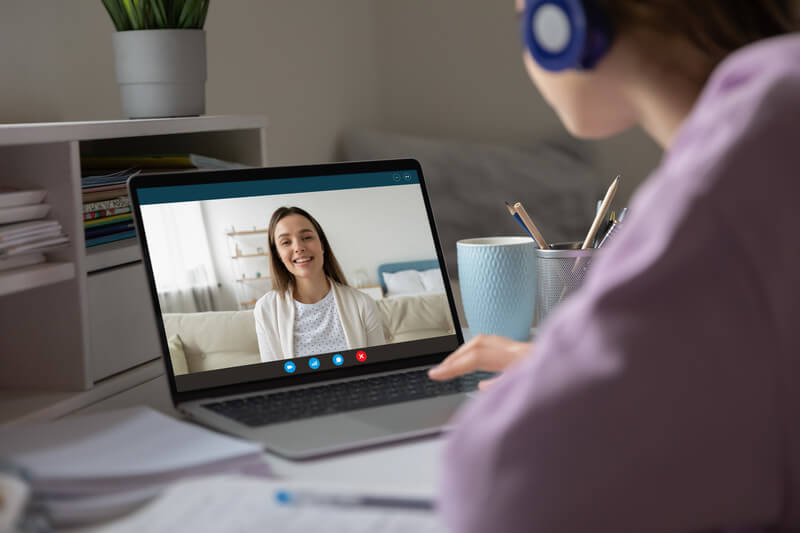Guest post by JST Graduate Laurie Chester, MA, BCC of Get it Done ABC, LLC
“You are living history,” I said to my young clients. “You will remember this forever, like I remember 9/11, and the Challenger explosion.”
I have been a certified Academic and Life Coach for 18 years, in the northern Virginia/DC metropolitan area. I focus on teaching, supporting, and encouraging executive functioning skill development in such critical life skill areas as planning, prioritizing, time management and organization. Thrown in along the way is a hearty dose of cheer leading and moral support.
This spring, as the Covid-induced “stay-at-home” period morphed from weeks into months, I became curious: what was it like for my current and former teen and college-aged clients to actually be “living history in the making?”
I asked 32 current and former clients aged 13-22 three basic questions about their Covid 19 pandemic/quarantine/distance learning experience: what had they learned about themselves (specifically, “what surprised you about you?”); what they had learned about the other people sharing their “isolation bubble”?; and how had they done with distance learning? Their answers revealed remarkable self-awareness and resilience, and a willingness to keep chugging along despite all the adversities they faced. While it was a tumultuous and trying time for everyone, this unprecedented period of seclusion and novel challenges offered my clients a chance to gain some interesting insights and experience positive interactions that may never have occurred otherwise.
Surprise, Surprise
The nearly universal “epiphany” that my clients experienced during this unprecedented “stay-at-home” period was the realization of how much they depend on the structure and routine of school and school activities to manage their time and lives. The majority reported discovering how hard it is to self-regulate, motivate and self-structure one’s time when there were no longer schedules to be followed. “I expected that not having a schedule would allow me to calm down and relax, but not having school made me more anxious…I was surprised that having a schedule was so important to my mental health.” Many spent the first weeks of quarantine staying up too late and sleeping half the day away while their schools either designed, or worked to improve, their on-line learning programs. Those whose schools did totally asynchronous learning (no live classes—only recorded or written lectures/materials) had to battle that “turn night into day” temptation for the duration of the school year. Some were able to self-impose schedules, adapt to their new learning situation, and establish a rhythm and schedule. Others found that despite having more “free time” than ever before, they put off their school work until the last minute, even to the point of missing generous deadlines. “I was awakened to the fact that my time management skills were not as good as I believed them to be.” Now, with home and school “blurred together, procrastination intensified.”
But the increase in unstructured, unscheduled time wasn’t all bad: it lead to self-development and exploration for many; there was time to experiment with new activities and discover new interests, like taking up long-distance running, fishing, perfecting bike tricks, reading for pleasure, and “playing” with art and enjoying being creative for its own sake: “I’ve realized how much fun it really is just to be creative for fun.” Some dabbled in more esoteric realms: “I became intrigued by the ideas of crystal healing and the concept of chakras.” Focusing on health, eating habits, and exercise routines became productive uses of the newly available open time. “I learned that I get bored very easily and had to learn new things to keep myself busy, or I would lay in bed all day and sleep.” One result? A rearranged bedroom and single-handedly putting together a new bed-frame.
Adjusting to life without classmates, teammates, and friends was a mixed bag for my clients. Some struggled with the isolation: “…not being able to see my classmates in school was very devastating.” And several felt that the isolation meant “too much time in my head” which wasn’t good for them. Losing close connections with friends occurred for a few because “some friends weren’t good at communicating when they couldn’t see you [in person] and manufactured drama” to replace the now-missing middle school social drama of regular school. But many others were surprised that they were able to stay positive during quarantine and could “have fun” without perpetual “friend” interaction. For some, their innate introversion meant that spending more time alone was actually a welcomed change. Others who feared that keeping friends would be hard found that as soon as their virtual school day ended, the virtual contact with friends began, either by talking or playing games online. Overall, many of my students discovered that they acclimated to the “new normal” better than they would have guessed: “I learned that I am stronger than I ever thought I was.” While none of it was easy “I have been surprised by how positive I have been able to stay during this time.” A college student suddenly thrust back into his family-of-five home 24-7, said reflectively “I was surprised by my ability to stay sane”.
For more information, you can reach Laurie Chester at getitdoneabc@comcast.net

